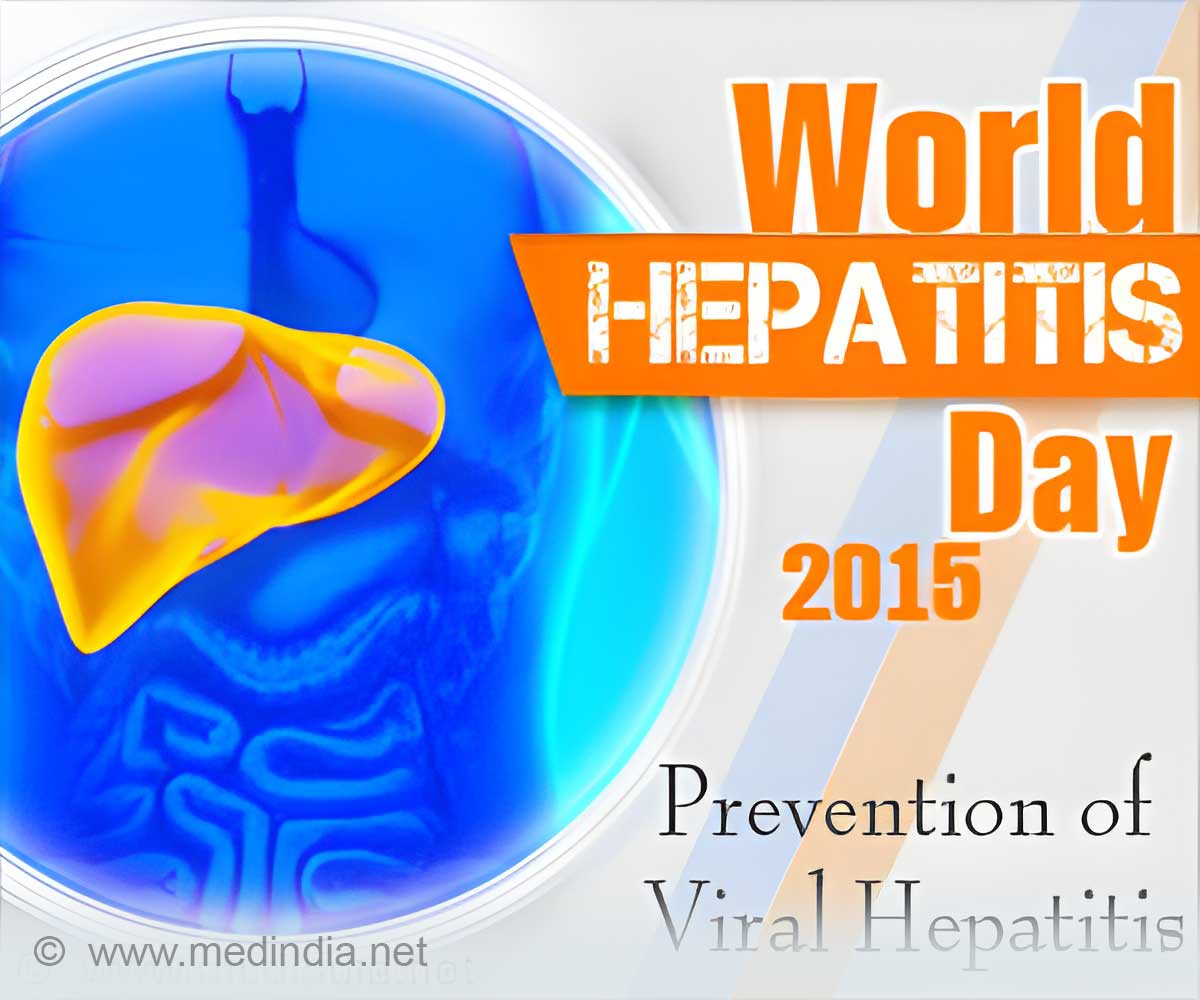World Hepatitis Day (WHD) is celebrated by people all over the world annually on July 28.

What is Hepatitis?
Hepatitis is an inflammation or swelling of the liver. There are five types of hepatitis viruses: A, B, C, D and E. Types A and E are responsible for short term or acute infection whereas types B, C and D cause long term or chronic infection. Hepatitis B, C and D lead to life threatening complications such liver cirrhosis, liver failure and cancer.It is estimated that nearly 400 million people suffer from hepatitis B or C worldwide. As many as 1.4 million people succumb to viral hepatitis every year despite the availability of resources and drugs to treat this disease. Creating a better understanding and awareness of prevention and treatment of hepatitis can save nearly 4,000 lives a day.
Hepatitis A is mainly caused by food and water contamination with fecal matter. Hepatitis B is widely seen in many Asian and African countries. Hepatitis B and C are transmitted through blood and body fluids. It is important to also know that vaccines are available for both hepatitis A and B. Hepatitis C on the other hand is mainly caused by the sharing of needles or other instruments or materials such as cotton, spoons etc., which are used to inject drugs. Infected blood and blood products used for transfusion can also cause hepatitis C.
Most people who suffer from viral hepatitis are asymptomatic in the initial stages. If undetected, chronic hepatitis can lead to liver failure.
Objectives of World Hepatitis Day
The main objective of WHD is public awareness and consciousness-raising about this deadly silent killer virus.Other Objectives include:
- To raise public awareness about various forms of hepatitis, transmission and awareness of vaccines.
- To educate people about immunization, early diagnosis, prevention, screening and various treatment options of hepatitis.
- Increase awareness about the risk factors for hepatitis and encourage early testing.
- Get people involved through global activities to implement solid steps towards controlling hepatitis.
- To remove the social stigma associated with hepatitis and promote comprehensive care and treatment of people suffering from hepatitis.
- To prevent transmission of the virus by isolation and quick treatment of infected individuals.
- To involve various health organizations, including healthcare professionals to help create new ideas and strategies for prevention of hepatitis.
Activities on World Hepatitis Day
Activities on WHD are conducted at the local and global level to serve as a platform for public health awareness.- Free screening, testing and diagnosis of hepatitis.Free vaccination camps for hepatitis.
- Speech/discussion/talk shows on hepatitis by health care professionals.
- Demonstration of the causes and effects of the disease by flash mobs.
- Numerous competitive activities like essay writing, poster preparations, sporting activities etc., to involve the general public.
- Promoting awareness through social media websites, newspapers, TV, poster/pamphlet distributions.
Theme 2015: “Prevention of Viral Hepatitis”
WHD is celebrated in more than 100 countries worldwide. WHD supports affirmative action to minimize the death toll due to viral hepatitis. The aim of the campaign is to give viral hepatitis the priority it deserves by raising awareness globally.The WHO and the World Hepatitis Alliance are key organizations making every effort to spread public awareness and prevent viral hepatitis. On WHD 2015, WHO and its health partners will conduct events globally to focus on the prevention of hepatitis B and C. Organizations like the Center for Disease Prevention (CDC) and the Canadian Society for International Health (CSIH) are involved in various activities on WHD.
This year, the WHO has formulated a set of key messages to mark WHD 2015. The keyword and main focus is “prevention.” The messages include:
- Understand the Risks of Transmission to Prevent Infection – Public awareness on the risks of infected blood transfusions, infected needles and drug-sharing equipment can play a major role in preventing the viral infection.
- The Right to Demand Safe Injections – An estimated 2 million people are infected each year due to infected needles. It is our basic health right to demand sterile, disposable syringes while taking injections.
- Vaccinations – As the trusted adage goes, “prevention is better than cure.” The availability of an efficient and safe hepatitis B vaccine can prevent children and adults from getting infected.
- Early Diagnosis and Treatment – Getting tested early and seeking treatment is the best way to prevent the secondary complications of viral hepatitis. According to Dr Dinesh Kini, Director of Digestive and Hepatobiliary Sciences, Sakra World Hospital, Bangalore, the arrival of breakthrough treatments for chronic viral hepatitis B and C holds out much hope of better cure rates.
http://www.who.int/hiv/mediacentre/news/whd2015_preventhepatitis/en/
http://www.who.int/campaigns/hepatitis-day/2015/event/en/
http://www.nhs.uk/Conditions/Hepatitis/Pages/Introduction.aspx
http://www.who.int/campaigns/hepatitis-day/2015/event/en/
http://www.searo.who.int/india/mediacentre/events/2015/ILBS_WHOCC/en/
http://www.cdc.gov/hepatitis/worldhepdayresources.htm
http://whdcanada.org/
Source-Medindia















